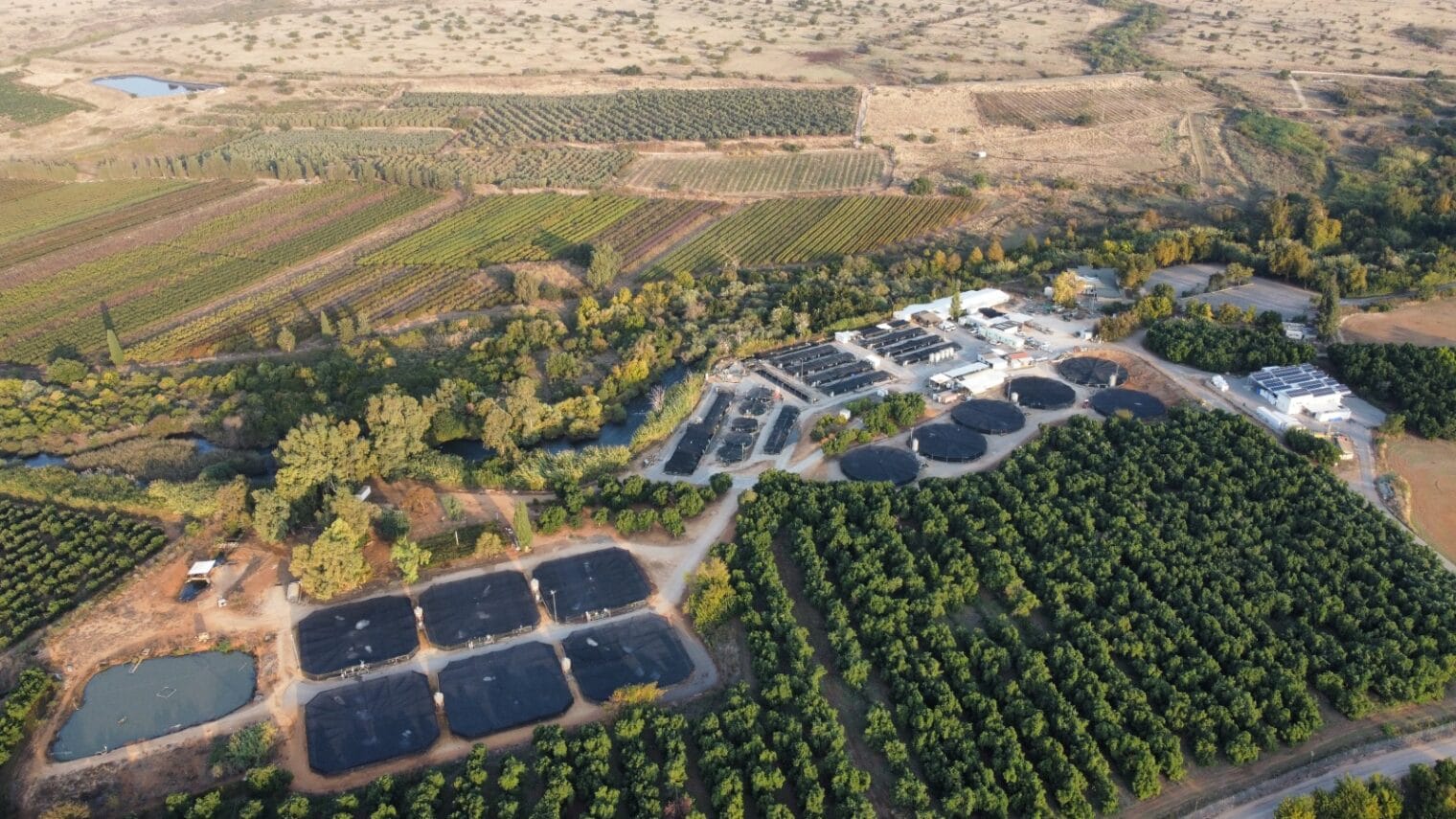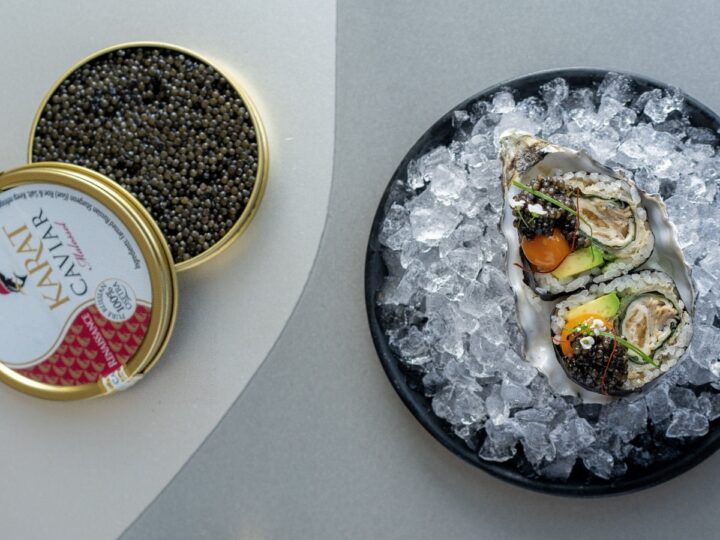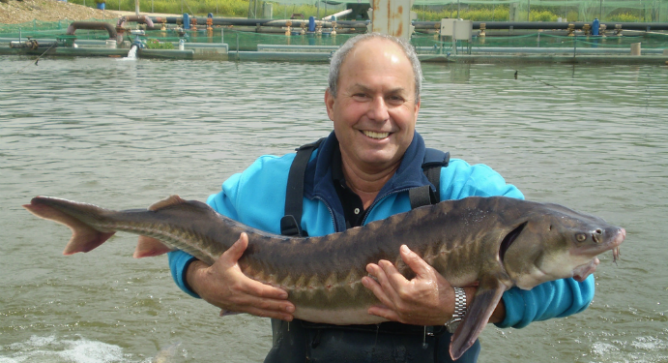Kibbutz Dan is usually a pastoral setting, with lush green vegetation and a river fed yearlong by streams from Mount Hermon.
Less than two miles from the Lebanese border, the kibbutz now finds itself in a military zone and the majority of its 850 inhabitants evacuated.
Two of those who steadfastly remain are Assaf Koren, CEO of Caviar Galilee; and his cofounder Avshalom Hurvitz, a biologist who since 1982 has overseen the growth of Dan Fish Farms, a cultivator of trout.
Hurvitz explains that while many factories can just shut down, “you can’t do this with fish farms, especially when it runs on a vertical model where everything is done ourselves from breeding to cultivation and harvesting of the fish to packaging and delivering the end product to the customer.”
The ponds at Dan Fish Farms contain around three million trout, from which 600 tons of fish are harvested annually to the local market year round.
Koren was born nearby on Kibbutz Snir and became CEO of Caviar Galilee four years ago after serving 20 years in the army and retiring with the rank of major.
He also believes strongly in his decision to stay on. He describes with anguish his struggle to save this year’s harvest and the 40 ponds of Osetra sturgeon from which one of the world’s most prized and expensive types of caviar is produced.
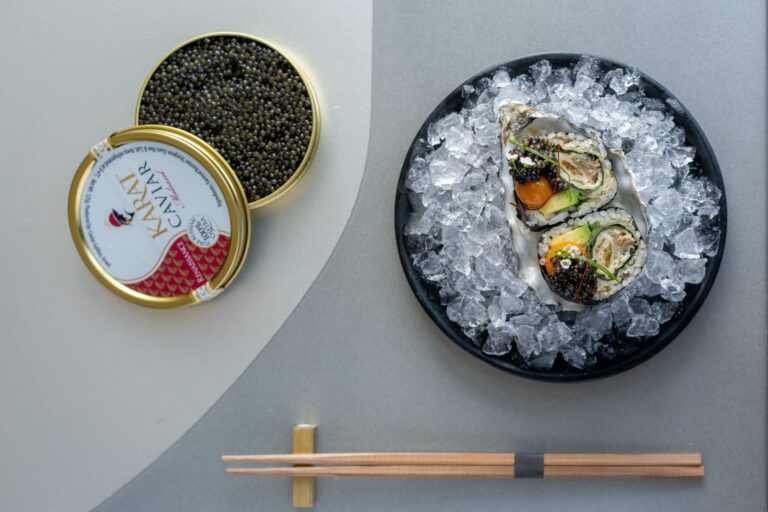
“All our work is geared toward this season. It’s the time of year when we harvest egg roe from around 2,000 sturgeon and ship our Karat Caviar brand all over the world.”
It is also the end result of years of extremely careful cultivation. Egg roe, Koren explains, can only be harvested after the female sturgeon reaches maturity, which in Europe takes 12 years on average. Through innovative farming methods developed by Caviar Galilee’s R&D laboratory, this process has been accelerated and females mature around their seventh year.
“The timeframe to harvest is very small, and without our full workforce we were under immense pressure,” Koren tells ISRAEL21c.
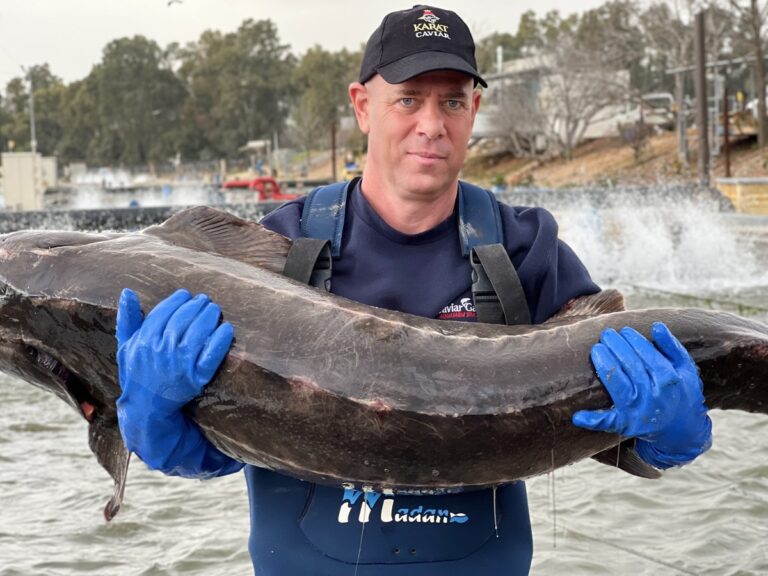
Never before
Although the proximity to the Lebanese border has meant Kibbutz Dan has long been under threat to its security, an evacuation is unprecedented, according to Hurvitz, who was born in 1948, the year Israel was founded.
“In the Independence War, women and children left the kibbutz for a time, but it was not official. There was no evacuation in the Six Day War of 1967 or the Yom Kippur War in ’73. This time, the government ordered an evacuation.”
Hurvitz goes on to say that although the Hamas attack of October 7 took place 125 miles from the Upper Galilee where Kibbutz Dan is situated, the mass killing, kidnapping and storming of army and police installations by Hamas terrorists changed the psyche of the entire nation.
Hezbollah terrorists in Lebanon have been firing on Israel’s far north and it seems more ominous than usual.
“The paradigm changed on October 7. Nobody thought Hamas would attack and we were proven wrong. Afterwards, we couldn’t take a chance and all 14 settlements along the northern border were evacuated. People were really afraid to stay.”
Hurvitz’s family members are now scattered. His wife and a daughter are in Haifa, another daughter is in Ramat Gan, and a third daughter is in Karkur.
Koren’s wife and children, ranging in age from seven to 16, have moved six times since they left their home on Kibbutz Snir, along with 800 other members of the community.
“At the beginning, the government didn’t have a solution for them so they stayed at different friends around the country. They are now living in a hotel in Nazareth and I go and see them maybe once a week,” Koren says.
Farms without workers
Gone with the evacuated residents of the kibbutzim and towns on the northern border are many of the workers in the kibbutz industries.
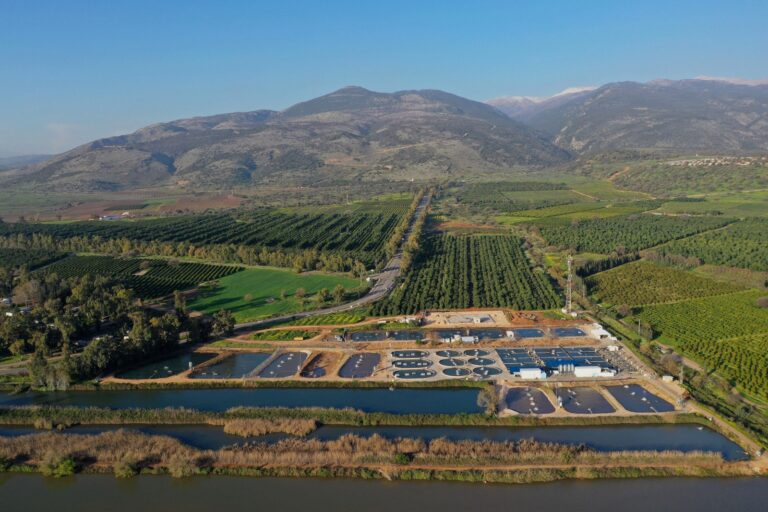
At the caviar farm, half of the 30 employees have left. Those who remained are mostly from the Alawite Arab village of Rhadjar, which has the distinction of being located half in Israel and half in Lebanon.
Although Rhadjar, with its population of over 3,000, fell under evacuation orders, the villagers decided not to go.
“I told the workers they must do what is best for their families but they decided to stay. Their loyalty really warms my heart,” says Koren.
He is proud that even with this limited workforce the farm managed to complete the harvest of around three tons.
“We worked around the clock and sometimes had to run to the shelters numerous times during the day when the [air raid] sirens went off. It’s also not easy for workers on the night shift who feed the fish and check oxygen levels in the water, but we have no choice but to operate,” says the CEO.
The caviar farm also faced challenges in packing up the product and transporting it three hours away to Ben-Gurion International Airport.
“Sometimes it had to be brought all the way back as flights were cancelled. It became a very complicated situation when I had to tell buyers their orders were stalled. Some obviously turned to other suppliers and I hope we won’t lose them as customers in the long term.”
Orders have fallen
The trout farm did not encounter transportation problems as it only supplies the local market, but other challenges remain.
Hurvitz estimates that orders have fallen 40 to 50 percent as hotels and restaurants are not working to their usual capacity or have shuttered for the time being.
It is also an unknown for how long the war will continue and how this will affect the operation long term.
Koren is upbeat, though, when he shares how clients worldwide have reached out.
“We have customers in the US who contact me every week to ask how they can help. Another client in Sydney sent photos yesterday of balloons flown in the name of each of the 240 hostages being held in Gaza and there are also messages of support from France, Canada and Japan.”
While his love is undiminished for the “paradise” he has called home since he was born to immigrant Polish parents who were amongst the founders of Kibbutz Dan, Hurvitz is pensive when discussing other reasons that keep him from leaving:
“A nation has to eat during war too, but we have to think about what happens the day after. That means staying and preserving what we have built up.”




